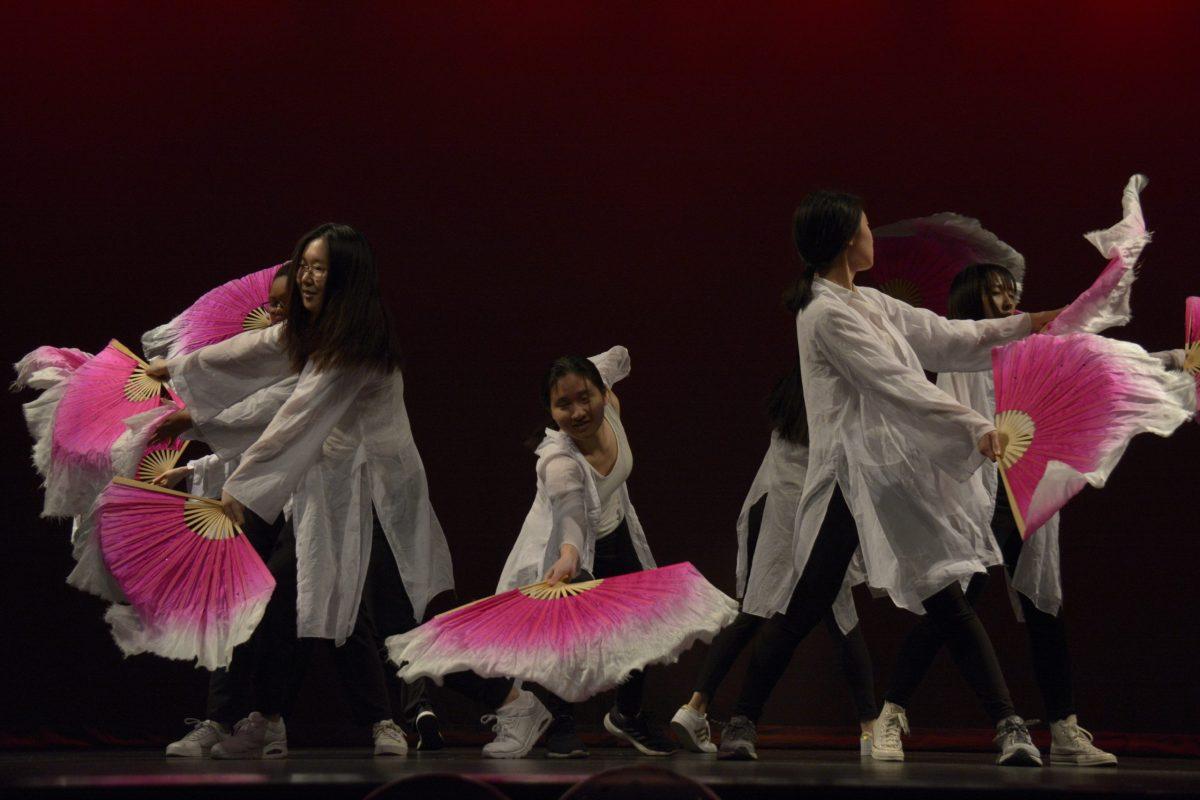Wellesley’s Asian Dance Organization (WADO) is facing criticism from members for only offering K-pop dances.
As the name suggests, the student organization defines itself as a dance organization that “strives to spread traditional and modern Asian culture and dance to the Wellesley community and surrounding areas.” WADO is the only dance organization on campus that seeks to highlight Asian culture through its dance routines. In the past five years, WADO has showcased a variety of types of Asian dance, including performances in the Chinese classical style, Bollywood style, Vietnamese lotus style, and Japanese folk style, alongside its many K-pop dances.
At WADO’s Spring Showcase, the biggest event of the year where it showcases selected Fall dances, Spring dances, Big-Little dances, E-board dances, and guest performances, there are usually two traditional dances for every ten K-pop dances. However, this fall semester, the dance line-up includes “The Real” by ATEEZ, “Light a Flame” by SEVENTEEN, “Candy” by NCT DREAM, and “Pose!” by Lightsum, all K-pop dances.
Many WADO members have expressed concern with the dances provided, as they feel that the routines are mainly from South Korea, not other Asian cultures.
According to Destiny Villarreal ’25, an active member of WADO for three years, “I think that they [WADO] miss out on making an inclusive environment for people who do have interest in other dances, especially if it’s people who identify with that culture.”
Villarreal explains that this has been a constant issue because WADO is only able to do four dances each semester. Due to rehearsal time constraints, non-K-pop dances are often cut.
Genesis Hang ’25, WADO Social Co-Chair and act leader for “POSE!”, explains that WADO does not intend to become a K-pop dance group, but last year’s interest form showed that general members indicated a preference for K-pop performances.
“We [WADO E-board] try really hard to emphasize that we’re not just a K-pop, club or group…But I think the most appealing thing about WADO to people, is the fact that we do offer K-Pop dances and activities related to K-pop, such as Random Play, dance, etc.,” said Hang.
Students like Sophia Clarkson ’27, a general member, emphasized that WADO provides a space for K-pop dance enthusiasts at Wellesley.
“I joined WADO because they offer K-pop dances, and Wellesley doesn’t really have anything like that. If WADO doesn’t do K-Pop dances, then all the people interested in that won’t really have anywhere else to go,” said Clarkson.
WADO members reiterate that while the organization welcomes diversity, the lack of other cultural dances happened unintentionally as a result of few members signing up to be act leaders teaching those dances.
“People sign up to be act leaders, and we usually choose from that, and we like to have variety. So we’ll typically have, as you’ve seen in the past, like Chinese, traditional dance, all of that, but no one really signed up this year,” Hang said.
Hang speculates that the lack of people signing up to be act leaders could be because of the many act leaders who graduated last year, taking with them their knowledge of Chinese dances and other non-K-pop dances.
To bring back more Asian cultural dances in the future, Villarreal suggests that WADO could host different dance workshops to move beyond being K-pop-centric.
WADO is also looking into organizing a social mixer with Northeastern’s Indian dance club, hoping for a joint workshop in the future, in an effort to increase diversity and representation going forward.
Hang emphasizes that WADO hopes to be more inclusive in the future.
“The way we picked dances earlier is obviously because we have personal biases, biases going into our choices here … obviously, we didn’t have that many [non K-pop dances] this semester. But if E-board members keep in mind that we are trying to include different interests for different people, then I think we’d be able to do that,” Hang said.
Contact the editors responsible for this story: Valida Pau, Sazma Sarwar and Lyanne Wang




